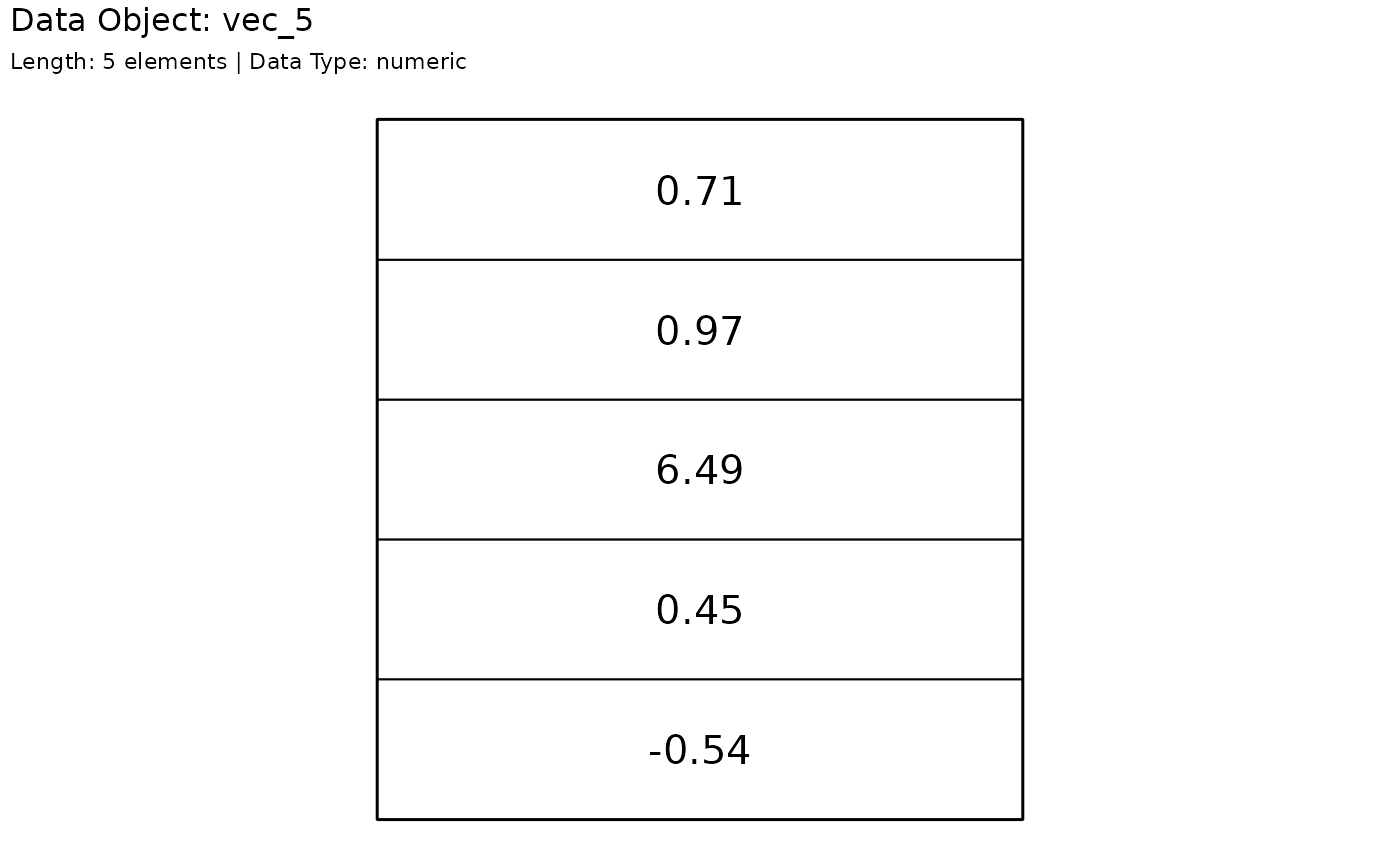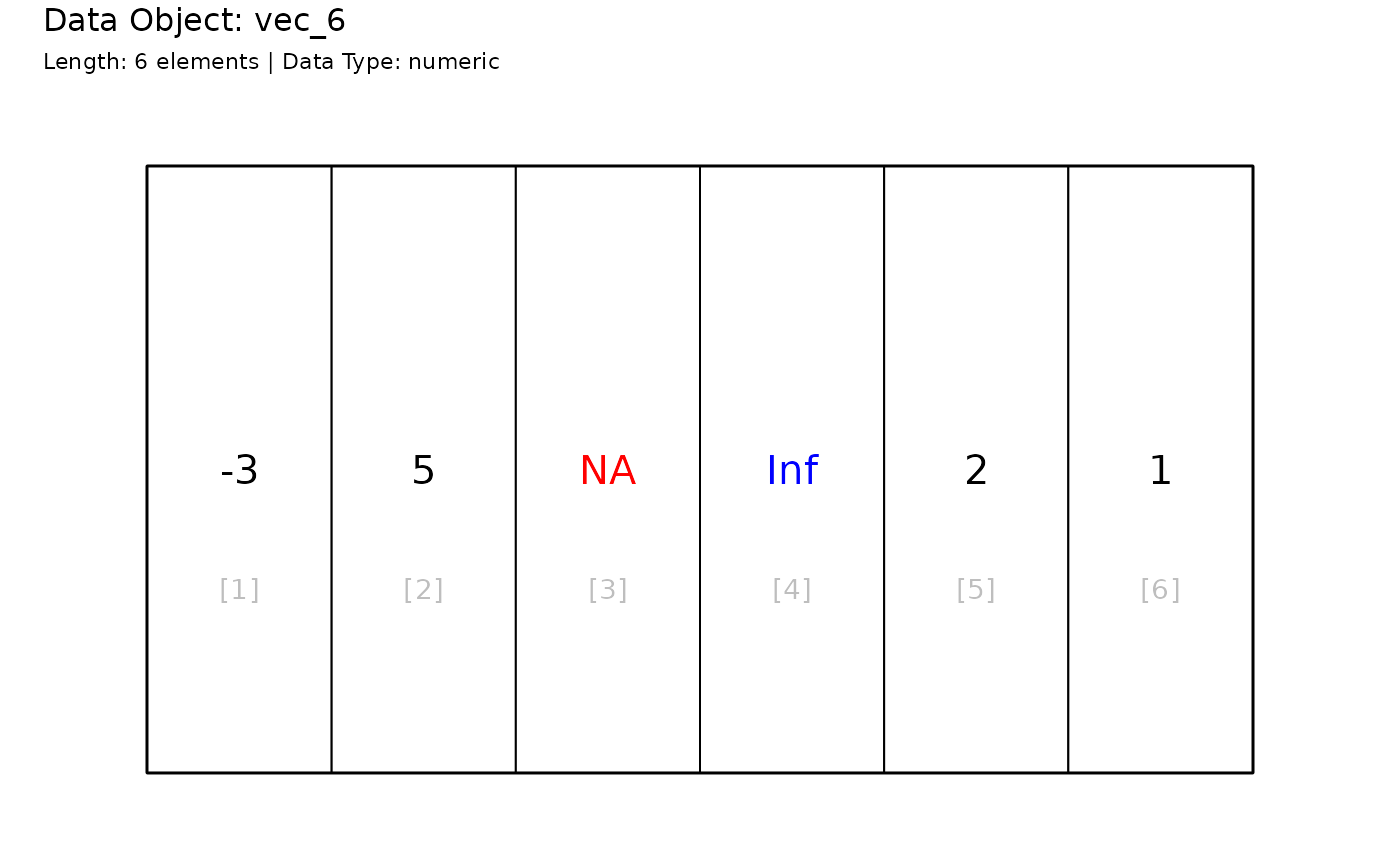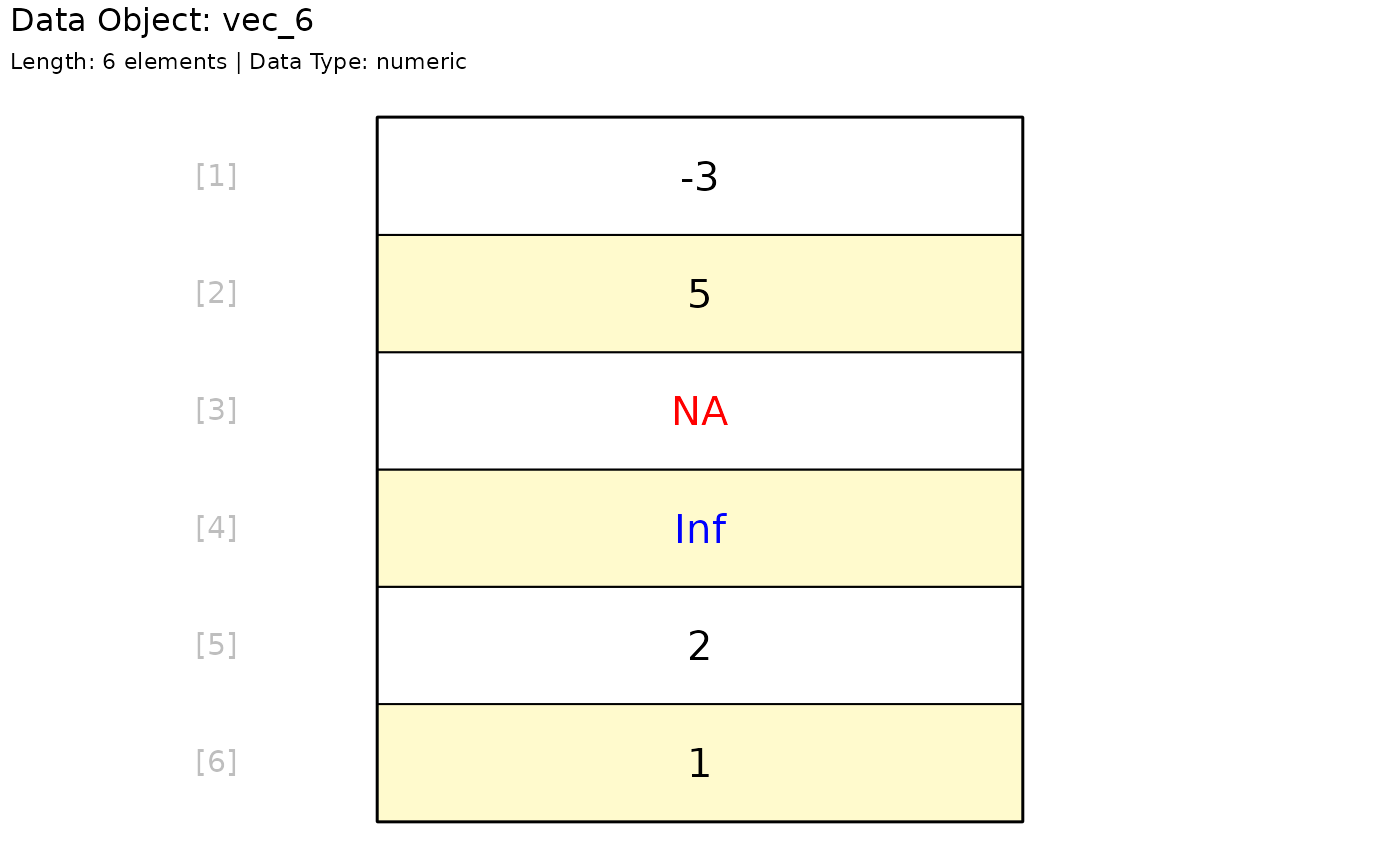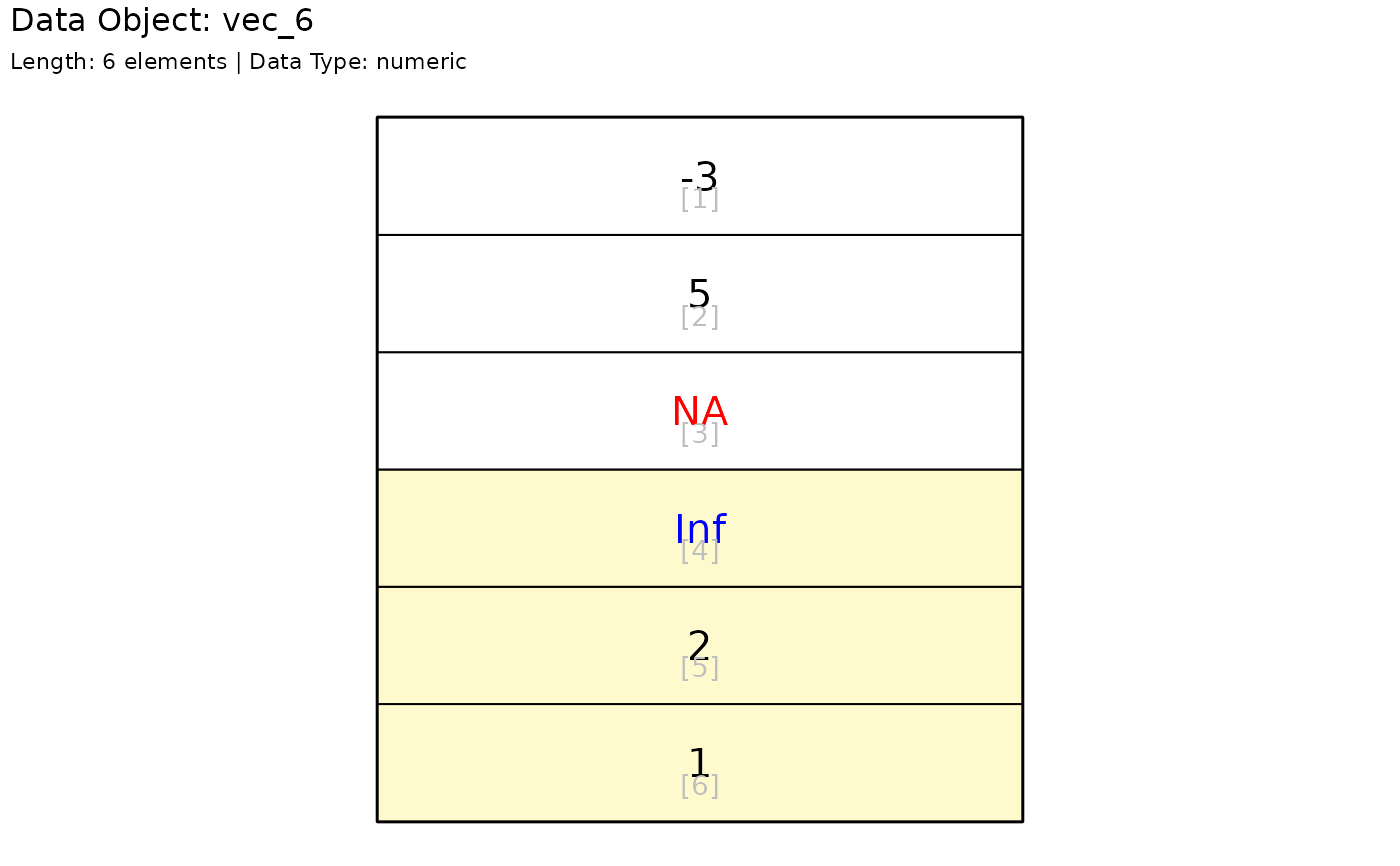Generate a graph showing the contents of a Vector
Usage
paint_vector(
data,
layout = c("vertical", "horizontal"),
show_indices = c("none", "inside", "outside"),
highlight_area = rep(FALSE, length(data)),
highlight_color = "lemonchiffon",
graph_title = paste0("Data Object: ", deparse(substitute(data))),
graph_subtitle = paste0("Length: ", length(data), " elements | ", "Data Type: ",
paste(class(data), collapse = ", "))
)Arguments
- data
A object that has the class of
vector.- layout
Orientation of the vector. Default:
"vertical".- show_indices
Display data indices either:
"inside","outside", or"none"the vector cell, e.g.[i]. Default:"none"- highlight_area
Vector of logical values that provide a mask for what cells should be filled. Default: None.
- highlight_color
Color to use to fill the background of a cell.
- graph_title
Title to appear in the upper left hand corner of the graph.
- graph_subtitle
Subtitle to appear immediately under the graph title in the upper left hand side of the graph.
Examples
# Base graphics
# Visualize a vector with 5 elements
vec_5 <- round(rnorm(5, 0, 4), 2)
paint_vector(vec_5)
 # Visualize a 6 element vector with indices underneath data
vec_6 <- c(-3, 5, NA, Inf, 2, 1)
paint_vector(vec_6, layout = "horizontal", show_indices = "inside")
# Visualize a 6 element vector with indices underneath data
vec_6 <- c(-3, 5, NA, Inf, 2, 1)
paint_vector(vec_6, layout = "horizontal", show_indices = "inside")
 # Highlight the 2nd, 4th, and 6th cell with indices shown outside
paint_vector(
vec_6, show_indices = "outside",
highlight_area = highlight_locations(vec_6, c(2, 4, 6))
)
# Highlight the 2nd, 4th, and 6th cell with indices shown outside
paint_vector(
vec_6, show_indices = "outside",
highlight_area = highlight_locations(vec_6, c(2, 4, 6))
)
 # Highlight the 4th-6th cells with indices shown inside
paint_vector(
vec_6, show_indices = "inside",
highlight_area = highlight_locations(vec_6, 4:6)
)
# Highlight the 4th-6th cells with indices shown inside
paint_vector(
vec_6, show_indices = "inside",
highlight_area = highlight_locations(vec_6, 4:6)
)
